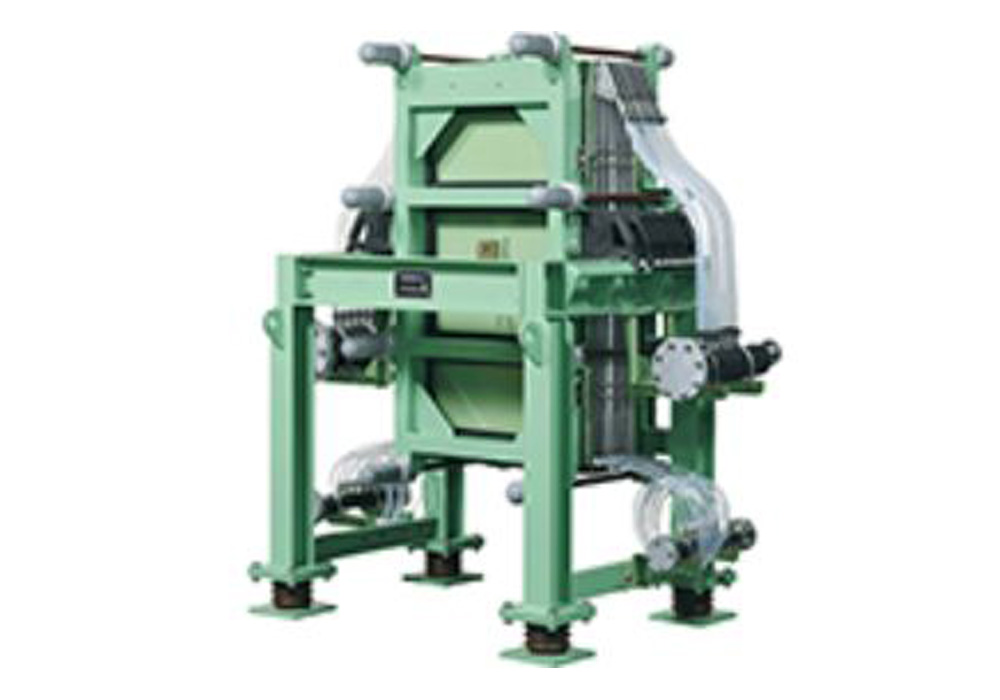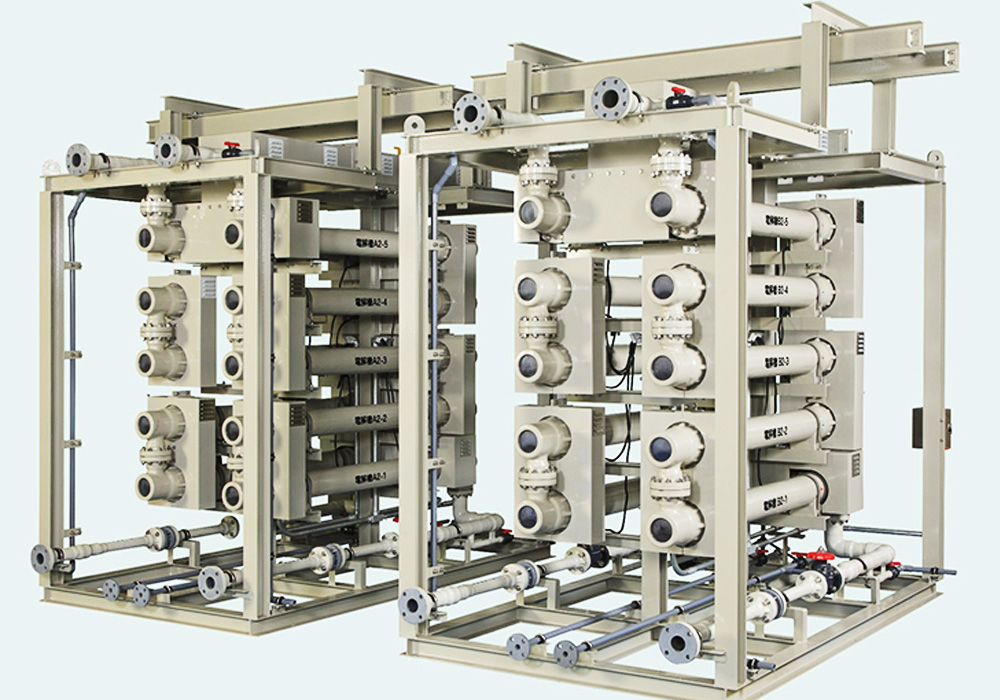De Nora launches innovative on-site chlorine generation system
Water disinfection, filtration pioneer and electrochemistry leader De Nora launched the CECHLO-MS 200, a high-strength on-site chlorine generation system aimed at tackling water and sewage treatment challenges.
This new standardized design ensures reliable treatment, while minimizing safety concerns and enabling supply chain independence for water operators
The system uses world-proven ion exchange membrane electrolysis (IEM) technology to turn salt, water and electricity into a powerful chlorine-based solution ensuring 100% on-time, on-demand supply of chlorine on site, improving safety, mitigating concerns on storage, securing availability and minimizing life cycle cost.
“This is the latest generator in the De Nora CECHLO-MS systems product family,” says Mr. Marwan Nesicolaci, General Manager, Asia Hub of De Nora Water Technologies. “Unlike other solutions available in the market, the system offers unique advantages thanks to its optimized and standardized design – customers benefit from simple and quick installation, easy operation and maintenance and a faster turnaround on projects. CECHLO technology gives our customers the flexibility to choose from on-site generation of chlorine gas or hypochlorite solution, which are both proven effective and economical for water disinfection applications.
Responding to modern water and sewage treatment challenges
In an environment with ever tightening regulations, water and sewage treatment plants have been increasingly challenged to build treatment processes and plants that offer regulatory compliance, self-sustainability, safe operation, value economics and environmental-friendly solutions.
CECHLO-MS on-site chlorine generation system was developed based on De Nora’s profound expertise in electrochemistry combined a deep experience of complex water treatment applications. The high-strength system allows plant operators to build a self-sustainable and reliable supply chain of chlorine, eliminating the safety risks associated with having delivered and storing large amounts of chlorine, especially in populated areas. It also allows plants to optimise operation cost and improve sustainability to address the modern-day challenges.
Many centralized water treatment plants today have either installed or are considering the adoption of this safe, reliable, innovate and cost-effective solution to solve all their needs, while meeting increasingly strict country safety regulations.

The new and improved CECHLO-MS 200
This system generates on-site high strength sodium hypochlorite at 12% or/and chlorine gas in a “plug and play” configuration that safely produces chlorine on site. At the heart of the CECHLO-MS 200 system is the proprietary highly efficient Ion Exchange Membrane (IEM) electrolyzer, which has been continuously optimised through innovative upgrades, powered by proprietary De Nora DSA® electrodes.
“Modern-day challenges of water treatment are becoming more complex globally, and there is increasing demand to rise to these challenges with technology,” says Mr. Nesicolaci. “The new system utilises our proprietary technologies to help our customers to achieve a balance of safety, reliability, cost efficiency, and sustainability in water treatment. The team at De Nora continues to deliver innovative solutions that support safe and cost-effective water access for businesses and individuals, and we look forward to our continued working partnerships with water providers globally.
De Nora proven successes in the region and globally
This new product launch continues De Nora successes and partnerships in the region. It comes on the back of ground-breaking and solutions integrating both its CECHLO-MS on-site generation system and CAPITAL CONTROLS safe gas feed system to produce and feed chlorine gas and hypochlorite. This hybrid solution was implemented by Hong Kong’s Water Supplies Department (WSD), where De Nora delivered to several water treatment locations, with a combined design capacity of 8.46 tons/day chlorine. This solution is a response to safety concerns around the transportation and storage of large amounts of liquid chlorine containers in waterworks located in highly populated areas, and for these waterworks to include self-sustainable water treatment designs. All systems are scheduled to be operational across the water treatment plants by 2022.

